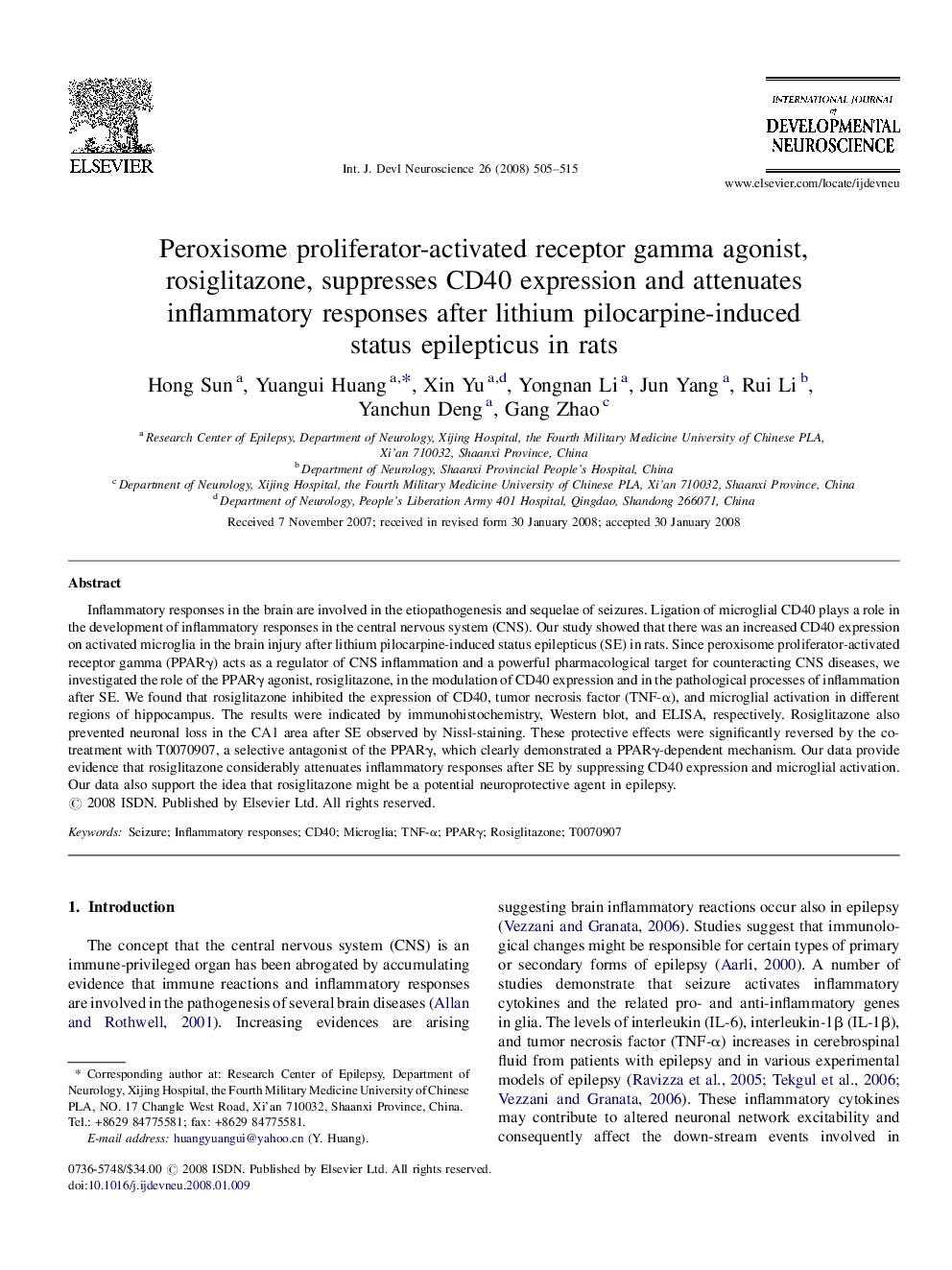| Article ID | Journal | Published Year | Pages | File Type |
|---|---|---|---|---|
| 2786683 | International Journal of Developmental Neuroscience | 2008 | 11 Pages |
Inflammatory responses in the brain are involved in the etiopathogenesis and sequelae of seizures. Ligation of microglial CD40 plays a role in the development of inflammatory responses in the central nervous system (CNS). Our study showed that there was an increased CD40 expression on activated microglia in the brain injury after lithium pilocarpine-induced status epilepticus (SE) in rats. Since peroxisome proliferator-activated receptor gamma (PPARγ) acts as a regulator of CNS inflammation and a powerful pharmacological target for counteracting CNS diseases, we investigated the role of the PPARγ agonist, rosiglitazone, in the modulation of CD40 expression and in the pathological processes of inflammation after SE. We found that rosiglitazone inhibited the expression of CD40, tumor necrosis factor (TNF-α), and microglial activation in different regions of hippocampus. The results were indicated by immunohistochemistry, Western blot, and ELISA, respectively. Rosiglitazone also prevented neuronal loss in the CA1 area after SE observed by Nissl-staining. These protective effects were significantly reversed by the co-treatment with T0070907, a selective antagonist of the PPARγ, which clearly demonstrated a PPARγ-dependent mechanism. Our data provide evidence that rosiglitazone considerably attenuates inflammatory responses after SE by suppressing CD40 expression and microglial activation. Our data also support the idea that rosiglitazone might be a potential neuroprotective agent in epilepsy.
